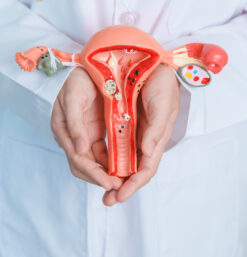Urinary Incontinence Solutions
Ongoing Support and Monitoring
Urinary incontinence is the loss of control over bladder function, leading to symptoms such as leakage or the feeling of "wetting yourself." It’s a common condition that can affect anyone, and the good news is that it can be effectively managed and treated with the right assessment and care.
At NG GyneHealth, we understand that dealing with incontinence can be challenging and often embarrassing. That’s why we offer a thorough Urodynamic Assessment — a specialized test designed to evaluate how your bladder is functioning. This assessment provides valuable insights into your bladder behaviour, helping us identify the underlying causes of your symptoms.
Throughout your treatment journey, our team at NG GyneHealth is here to provide ongoing support and monitoring.
We will regularly evaluate your progress and adjust your treatment plan to ensure better bladder health and comfort.
Based on the findings from your urodynamic assessment, we will work with you to develop a personalized treatment plan that best suits your needs and lifestyle. Our approach to managing urinary incontinence may include a combination of the following options:
Here are the treatments
Pelvic Floor Exercises

Strengthening your pelvic muscles is one of the most effective ways to improve bladder control. We will guide you through specific exercises, such as Kegels, designed to target the pelvic floor muscles. By incorporating these exercises into your routine, you can enhance muscle strength, improve support for the bladder, and reduce leakage over time.
Behavioural Techniques

Training your bladder can significantly help in managing symptoms. We may suggest methods such as bladder training, which involves scheduling regular bathroom visits to gradually increase the time between urinations. Additionally, adjusting your fluid intake—like reducing caffeine and alcohol—can help decrease urgency and frequency. These techniques empower you to take control of your bladder habits.
Medications

In certain cases, medications may be prescribed to help control bladder function and reduce symptoms. These medications can include anticholinergics, which relax the bladder muscle and decrease the frequency of urination, or beta-3 agonists, which can help increase bladder capacity. Our team will discuss the potential benefits and side effects to ensure you find the most suitable option for your situation.
Surgical Options

For some individuals, particularly those whose incontinence has not responded to conservative treatments, surgical options may be recommended to provide more permanent solutions. Procedures can vary depending on the type and severity of incontinence but may include sling surgeries, which support the urethra, or bladder augmentation surgeries, which increase bladder capacity. We will carefully evaluate your condition and discuss the best surgical options tailored to your needs.
N.G. GyneHealth Care Pty. Ltd. © 2006-2025. ABN: 68 119 441 413
Web design by Beetle Digital Pty. Ltd.







